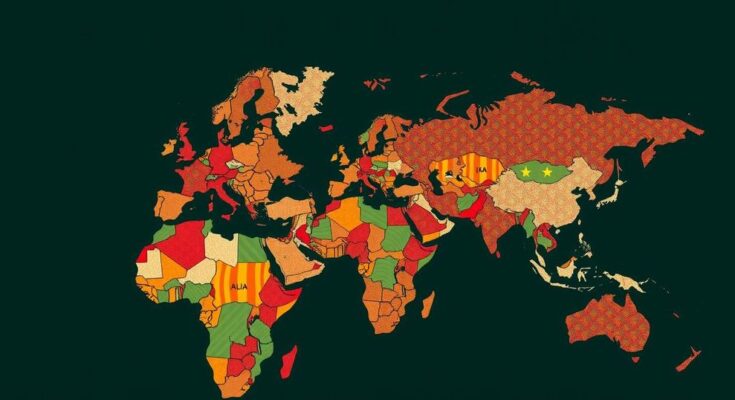The Taliban’s new morality law instills caution among foreign diplomats and aid organizations, causing concerns about how the rules will impact international engagement and humanitarian aid in Afghanistan. Despite the existing fears regarding women’s rights and interactions, many are still seeking ways to adapt their operations, though uncertainties remain about the law’s enforcement and implications for aid delivery.
Foreign diplomats and international aid organizations are adopting a cautious wait-and-see stance regarding the Taliban’s new morality law, assessing its enforcement’s impact on daily life and humanitarian efforts in Afghanistan. The August amendments to the law raised fears about hindering international engagement and complicating responses to the pressing humanitarian crisis afflicting the nation, where 23.7 million people require aid. The morality law, mandating gender-specific dress codes, smartphone content restrictions, and limitations on friendships between Muslims and non-Muslims, emerged shortly after a significant UN meeting in Qatar. This surprising turn of events has led diplomats and aid groups to reconsider their strategies amidst concerns about potential restrictions on foreign interaction and aid operations. Following initial optimism from the Doha talks, countries like Australia, Canada, Germany, and The Netherlands criticized the Taliban’s actions, stating they would bring the Islamic Emirate to the International Court of Justice for its disregard for women’s rights. High-profile activists, including actress Meryl Streep, joined in, spotlighting the harshness of the new regulations affecting women’s freedoms. Despite the negative publicity surrounding the law, some are looking past the uproar to gauge its true effects. The amendments signify further control over men’s and women’s behaviors, especially regarding professional interactions, leading to anxiety among international workers about compliance with these rules. Reinforcement of the law has been ongoing, with the morality police regularly inspecting local businesses to ensure adherence to gender segregation and prayer attendance. However, many locals assert that such policing has been a norm for over two years, hinting that while the laws have changed, enforcement practices have remained consistent. The U.S. is monitoring these new laws, with Karen Decker, acting U.S. chargé d’affaires, expressing concern about their implications for Afghan lives and signaling that humanitarian assistance may continue only if enforcement doesn’t impede activities. Despite these worries, the Taliban leaders’ promises of building good international relations appear increasingly contradicted by their actions. The Taliban defends its morality law as aligned with Islamic principles and affirming Afghan societal values, arguing that domestic policies should not be misconstrued as reluctance to engage internationally. Ministry spokesperson Abdul Qahar Balkhi stated their openness to discussions on various crucial issues despite these new restrictions. Despite restrictions already imposed on women’s education and NGO work, international organizations remain flexible to adapt their operations, carefully balancing aid delivery while navigating the Taliban’s stringent policies. Some NGOs have found ways to pivot aid discussions to broader family-centered initiatives to alleviate fallout from the law. Although the law’s content, particularly on restricting women’s public visibility, raises concerns, it’s still unclear how vigorously these measures will be enforced. Afghan women persist in media roles, although fears swirl about potential changes, with local experts urging clarity in communication from the Taliban to minimize confusion and instill confidence. Activists are simultaneously fighting against oversimplified narratives surrounding Taliban policies while pushing for more nuanced understandings of the challenges professed by Afghans living under these strictures. In the face of skepticism towards aid effectiveness, efforts persist to create robust oversight mechanisms and ensure assistance reaches those in dire need, while reminders of the current funding shortfall amplify the stakes involved.
The article investigates the impact of the Taliban’s recently ratified morality law on international aid operations and relations. As Afghanistan grapples with severe humanitarian crises, the enforcement of these laws raises crucial questions about the future of foreign engagement and the freedom of its citizens, particularly women. Amid fears of increasing restrictions and declining aid funding, the piece highlights the complex dynamics at play between the Taliban’s governance approach and international humanitarian efforts.
In essence, the Taliban’s new morality law poses a significant challenge to international humanitarian engagements in Afghanistan, stirring concerns among foreign diplomats and aid workers about the family’s ability to operate effectively in the changing landscape. With skepticism towards the Taliban’s commitment to international collaboration growing, the ramifications of the law foster fears of stagnating aid and exacerbating the already dire humanitarian crisis.
Original Source: www.thenewhumanitarian.org



